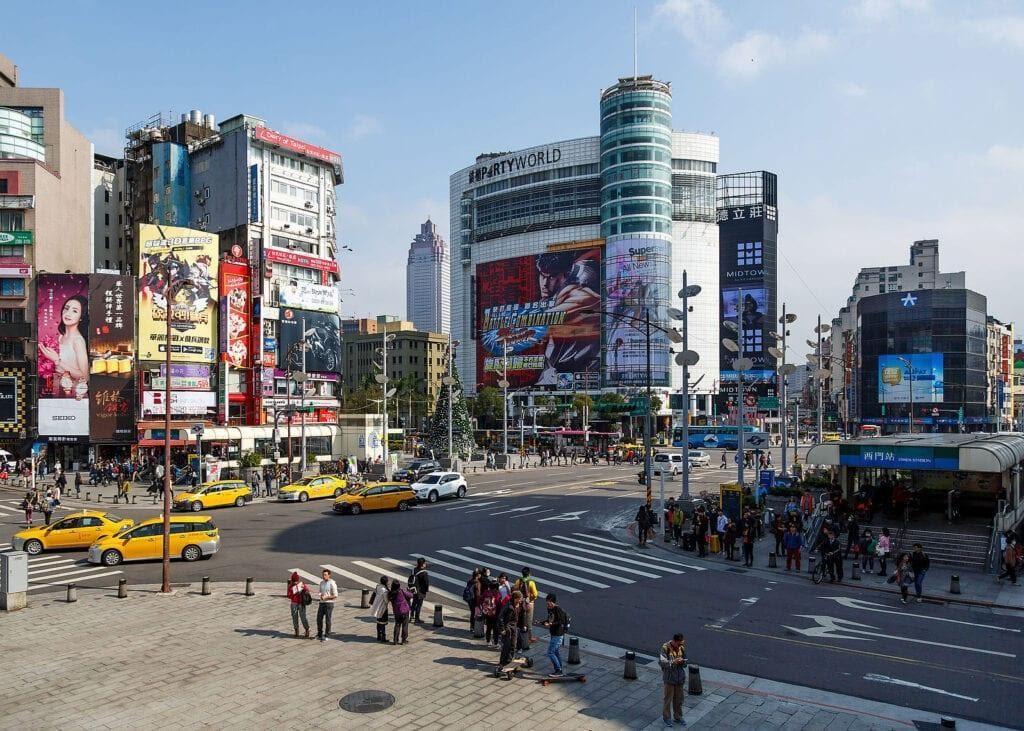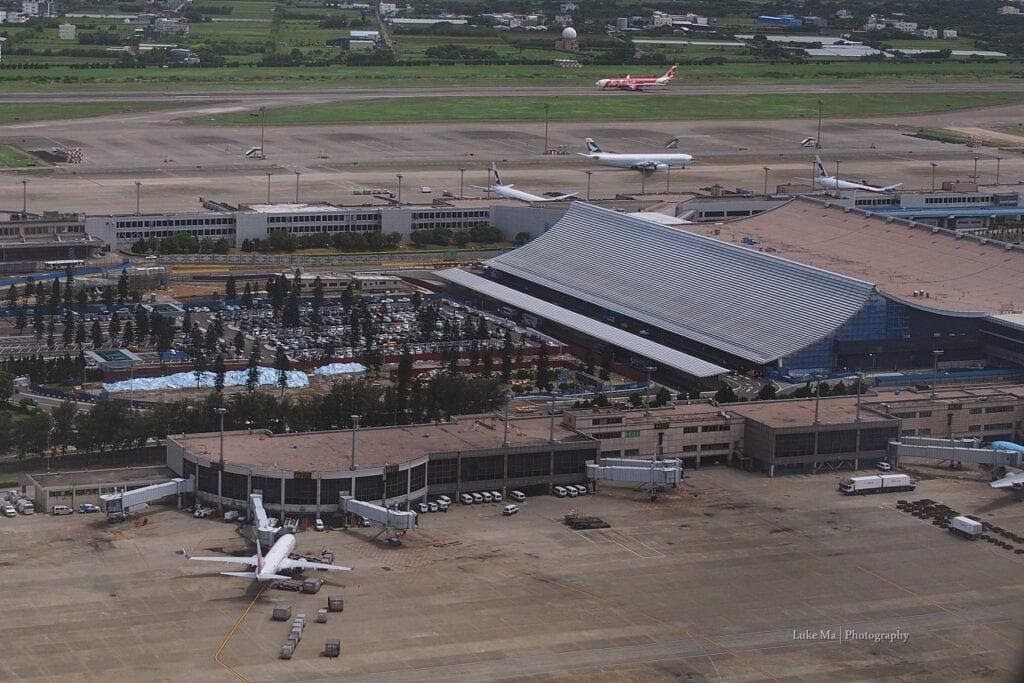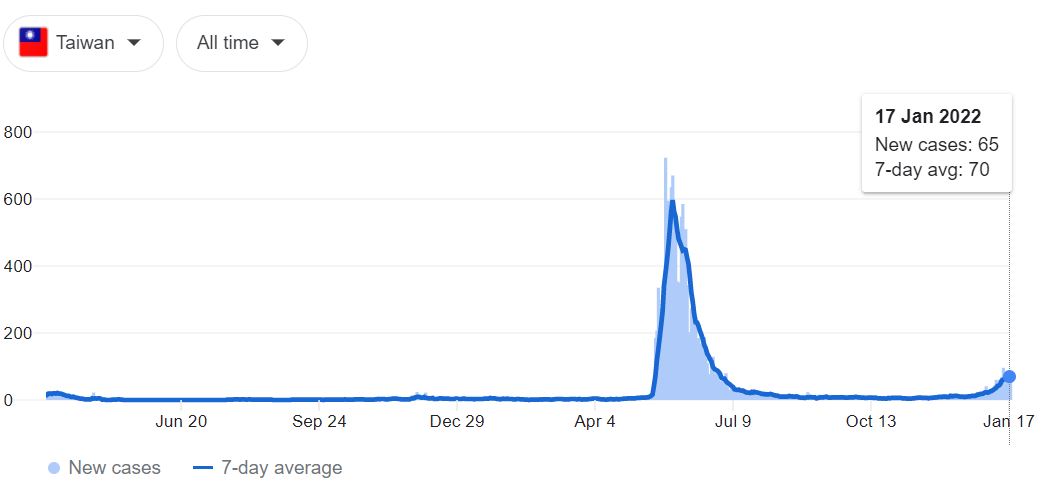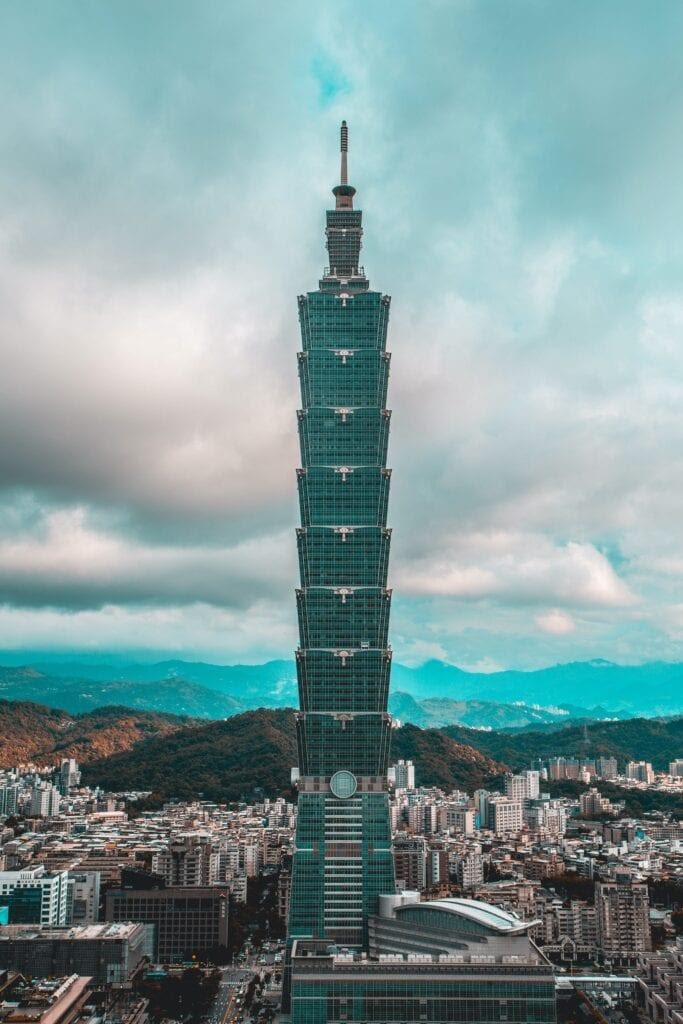Taiwan Remains Closed for Tourism But Considers Reopening for Some Workers
0 View
Share this Video
- Publish Date:
- February 11, 2022
- Category:
- HOW TO -
- Video License
- Standard License
- Imported From:
- Youtube
Tags
Sponsored Area
TODAY'S ADVENTURE
Taiwan Remains Closed for Tourism But Considers Reopening for Some WorkersTaiwan continues to be open for essential travel only. All visitors need to submit a negative PCR COVID-19 test result and quarantine for 14 days at a government-approved hotel. Residents are allowed to quarantine at home only if they can prove they live by themselves.
Tourism remains banned but reopening for vaccinated travelers is on the table.
According to a press release, the Ministry of Foreign Affairs of the Republic of China (Taiwan) is willing to gradually adjust regulations regarding foreign nationals’ entry into Taiwan “in accordance with decisions and standards set by the Central Epidemic Command Center (CECC).”
If reaching a regional consensus, travelers would not need to quarantine.
READ MORE: – When is Japan opening to tourists? – Is China open for tourism? – When is Singapore opening for tourism?
Join our Covid Travel Advice FB Group
Taiwan Reopening – LATEST UPDATES!
January 17 – Taiwan set to reopen borders to Filipino workers “very soon”
Taiwan has reopened its borders to workers from Thailand and is negotiating the reopening to Filipinos and Vietnamese people on a quarantine facility availability basis.
The Manila Economic and Cultural Office (MECO) Chairman and the Resident Representative met with the Taiwanese Ministry of Labor (MOL) to explore reopening Taiwan’s borders to Filipino workers.
The MOL will examine the capacity of the existing quarantine facilities in Taiwan and will recommend a timetable to allow entry to Filipino workers, with the priority given to returning Taiwan citizens during the Lunar New Year.
Current restrictions and entry requirements to enter Taiwan

All allowed visitors
Taiwan requires travelers to present a certificate, in English, of a negative COVID-19 test result taken within three working days before arrival. They also need to observe a 14-day quarantine at a government-approved facility or home if they live alone.
During this self-isolation time, local health officials will call them to check in on them and record their information on a Health Status Record form.
International studentsPan Wen-chung, Taiwan’s Ministry of Education, has informed that these students can either quarantine at the government-approved centers or at government-accepted hotels.
If a student chooses the former option, the school will have to pay (US$50) per day to the Ministry of Health and Welfare (MOHW) three days in advance of check-in. There is also a third option that relies on quarantine centers or dormitories provided by private schools, also approved by local health officers.
What countries can travel to Taiwan?
Keep in mind that given the emphasis on imported cases, Taiwan has been keeping an eye on the COVID-19 situation around the globe and it’s only opening its borders for a reduced number of passports and for a limited number of reasons.
Since the epidemiology status of each country can change without prior notice, we recommend consulting the travel possibilities with your embassy.

COVID-19 situation in Taiwan

Source
As of January 18, Taiwan is still keeping the numbers of COVID-19 cases very low. The territory has reported 17,951 positive COVID cases and only 851 deaths.
What is Taiwan’s current political situation?
Taiwan is a relatively small island inhabited by almost 24 million people. In practical terms, it has operated as an independent territory from China since the end of the Civil War in 1950.
However, the Chinese government has claimed sovereignty over Taiwan since 1949. Due to this situation, China requests other nations not to have direct diplomatic relationships with the island.
Taiwan had already had enough to worry about regarding its context of political uncertainty and growing social unrest when the hardest pandemic recorded in a century happened to break right at its door in the city of Wuhan, China.
It is of no surprise that Taiwan’s economy and flourishing tourism industry took a hit, as most of the world did, being forced to close its borders and strictly police commercial activity.

Taiwan is reopening borders: Update Archives
December 21 – Taiwan keeps its “Zero-COVID” approach as of Dec. 21
Taiwan will continue with its “Zero-COVID” strategy for the time being. Although the government has been highly criticized by multiple economic sectors, it has allowed the country to keep the virus “mostly” out of the territory.
The country has also updated its special entry policy for December. According to the update,
“Only overseas students, Indonesian migrant workers, spouses and minor children of R.O.C. (Taiwan) nationals, spouses and minor children of Resident Certificate holders (migrant workers and students excluded), and persons admitted for special humanitarian or diplomatic reasons will be allowed to apply for a special entry permit visa.”
December 7 – Taiwan will allow foreign residents’ spouses and children to enter the country
The Bureau of Consular Affairs (BOCA) announced on Friday that the spouses and minor children of select foreign residents can now apply for special entry permission.
Allowed visitors are required to observe a 14-day quarantine at a government-designated facility and complete an additional seven-day self-health management period.
Taiwan has also added South Africa, Botswana, Namibia, Lesotho, Eswatini, Malawi, Mozambique, Egypt, and Nigeria to its list of “key high-risk” countries. Passengers from these countries must also quarantine a government-approved place.
November 22 – Taiwan to allow 5,000 Mandarin students to enter in March
Those who want to visit Taiwan as well as become students of the Mandarin language would be able to enter the country in March, the Minister of Education (MOE) Pan Wen-chung said last week.
The Ministry will submit a proposal to the Central Epidemic Command Center (CECC) to allow some 5,000 non-scholarship and non-degree students to enter the country next year.
According to the Minister, the government would approve students enrolled in programs of six months or longer.
Pan’s comments came a day after DPP legislators lobbied the government to allow additional Mandarin learning center students to enter Taiwan.
November 8 – Taiwan to reopen for international workers in mid-to-late November
Taiwan’s Ministry of Labor (MOL) stated on Thursday that international employees will be allowed to enter Taiwan at some point between mid-to-late November.
The MOL will grant admission based on a new point-based system that considers the worker’s vaccination status, the COVID situation in their country, and the prospective employer’s epidemic prevention plan.
Taiwan’s Health Ministry later said that these workers will only have one month to enter the country in order to “make room” for Taiwanese citizens returning home for the Lunar New Year holiday.
October 23 – Taiwan could reopen borders for international tourism in November
The Ministry of Health and Welfare (MOHW) will consider loosening border restrictions when 70% of the population has received at least one dose of a COVID-19 vaccine or 30% of the population has been fully vaccinated.
The Minister projects any of these will happen by the end of October.
Shih Chung-liang, Deputy Minister of Health and Welfare, said the local outbreak in Taiwan has stabilized, and the administration is working to boost vaccine coverage as quickly as feasible.
Only 23.38 percent of the population has got both COVID vaccination doses so far.
October 7- Taiwan would consider international reopening after lifting domestic restrictions, Taiwan CECC head
Central Epidemic Command Center (CECC) head Chen Shih-chung said the country would consider lowering entry requirements once local restrictions are lifted.
This week, Taiwan stated to ease some COVID-19 restrictions after registering zero local cases for six days in a row.
Starting Oct. 5, movie theaters, sports venues, and train stations are allowed to reopen as long as the situation remains stable, (CECC) said Monday.
Chen also announced more liftings are coming, which is a positive sign for the resumption of international travel.
ugust 31 – Taiwan has launched its first domestically-produced COVID-19 vaccineLast week, Taiwan approved and started using its new Medigen Covid-19 vaccine, created by Taipei-based Medigen Vaccine Biologics Corporation.
It was approved for emergency use last month for anyone above 20 years old.
Although the vaccine has not completed the phase 3 clinical trials and efficacy data has not been released, the government expects to overcome the low immunization rates the country has due to the difficulties to buy other COVID-19 vaccines from overseas countries.
Some doctors consider the vaccine needs to overcome all the clinical trials before starting a massive distribution so they are pushing for a referendum to block its use.
Source: CNBC
September 17 – Taiwan may ease domestic Covid-19 restrictions on Sept. 21, says government
Taiwan’s Central Epidemic Command Center (CEEC) may lift level 2 restrictions on Sept. 21, announced CEEC chief, Chen Shih-chung on Tuesday.
After receiving reports of zero confirmed cases in multiple counties and cities, Premier Su Tseng-chang stated that the threat to the community has been reduced to the minimum levels.
For the very first time in months, Chen said that there is no plan to tighten restrictions. This announcement is particularly important for the Taiwanese people because the city-state is about to start the mid-Autumn Festivals. Source: Taiwan News
ugust 17 – Taiwan resumed travel bubble with Palau on August 14, conditions applyThe long-paused travel corridor between Taiwan and Palau resumed activities on August 14. Palau will offer 2,000 COVID-19 vaccines to Taiwanese travelers who want to come visit.
Conditions apply – earlier today the Taiwanese government clarified that in order to be eligible for the quarantine-free travel program, travelers from Palau must have received their vaccine shots in Palau only.
Taiwan will be under Level 2 alert until August 23, when restrictions will be revisited by the Central Epidemic Command Center (CECC) once again.
Source: Taiwan News
ugust 5 – Reopening of bars in September is not an option for Taipei governmentThe number of restrictions that will be lifted “or not” on August 9 is still uncertain since Taiwan government refuses to discuss the topic.
Taipei Mayor Hou Yu-ih told journalists that reopening bars even in September is not an option for the capital.
So far now, gatherings of maximum 50 people are allowed. Indoor dining in convenience stores and supermarkets is allowed, weddings can be carried out and tours with 50 participants may operate.
Source: Taiwan News
July 22 – Taiwan to extend visa-free entry to Thailand, the Philippines, Brunei, and Russia from August 1
Taiwanese authorities have created confusion among travelers from Thailand, the Philippines, Brunei, and Russia with the announcement that the Ministry of Foreign Affairs (MOFA) was extending its visa-free treatment to these countries while the travel ban remains in place.
According to the press release, Taiwan will continue with its “Project for Simplifying Visa Regulations for High-end Group Tourists from Southeast Asian countries” from August 1, 2021 through December 31, 2022.
Unfortunately, it does not mean that the city-state is opening for tourism. The Ministry has also said that this does “not indicate an opening-up of Taiwan to foreign tourists amidst the COVID-19 pandemic.” Source: Taiwan Government
July 7 – Taiwan could ease COVID-19 restrictions on July 9, says government
Taiwan is currently emerging from its first COVID-19 wave after being the role model of the world for how it had managed the pandemic until a few weeks ago.
Last Monday, Taiwan’s Cabinet announced that it would be possible to ease restrictions as coronavirus cases seem to decrease across the territory.
“Over the past two days, the CECC has been drafting guidelines (to ease the restrictions), and it is planning to move in this direction,” said Health Minister Chen Shih-chung at a press briefing.
With less than 8 percent of its population fully vaccinated, Taiwan is currently under a Level 3 COVID-19 alert.
Source: FocusTaiwan
June 19 – Taiwan to ban foreign tech workers from leaving home from June 18 due to first COVID-19 outbreak
Taiwan was one of the few countries unscathed by the pandemic until last month, when everything changed all of a sudden.
In early May several clusters of infections started to pop up mostly in the northern part of the island. The biggest one has been tied to the world’s biggest semiconductor company.
Last week, the government banned foreign workers from leaving home in an attempt to contain the ongoing COVID-19 activity.
Additionally, level-3 restrictions were extended through at least June 28. This means that gatherings have been limited to 5 people and wearing a face mask at all times is mandatory. (Source: NYTimes)
May 4 – Taiwan to ban travelers from India starting today
Taiwan became the latest place to ban arrivals from India following the worrisome situation that country is having with the new B1617 COVID-19 variant, which seems to be behind the extraordinary increase in coronavirus cases.
So far, 17 countries have banned passengers coming from India including the U.K. Switzerland, and Iran among them.
Consequently, starting today, Taiwan has imposed a new entry ban on travelers with history of travel to India, “except for R.O.C. nationals and non-R.O.C. nationals with ARC; returning R.O.C. nationals and non-R.O.C. nationals with ARC must be quarantined at group quarantine facilities and undergo testing” reads the government’s statement.
pril 8 Taiwan opens its first travel bubbleUnlike other multiple countries that have promised to open their borders or, at least, travel bubbles for its citizens to visit other places and don’t actually do it, Taiwan has done exactly as it said.
On April 1, Taiwan used for the very first time the “travel bubble”, the country and government of Palau had agreed a few weeks ago. This is a great milestone for a country that has been extremely reluctant to reopen for tourism. The first flight carried 100 tourists including Palau’s president and his wife.
“We are opening this travel bubble in hopes of boosting tourism and economic activities for both (sides) while preventing the spread of Covid-19.” Said the Taiwanese Health Minister Chen Shih-chung.
February 4
Health Minister Chen Shih-Chung has stated that the government is currently working on a plan to reopen borders through a new system. In order to be granted access, visitors will need to agree to the following requirements:
Bring confirmation that they had received a two-shot coronavirus vaccineBring proof of a negative Covid-19 test Other conditions (not released just yet)The post Taiwan Remains Closed for Tourism But Considers Reopening for Some Workers appeared first on Traveling Lifestyle.
-
By: Viktor Vincej
Title: Taiwan Remains Closed for Tourism But Considers Reopening for Some Workers
Sourced From: www.travelinglifestyle.net/taiwan-is-opening-borders/
Published Date: Tue, 18 Jan 2022 21:29:56 +0000
Did you miss our previous article...
https://onebagtravel.club/how-to/packing-list-for-a-mountain-vacation











